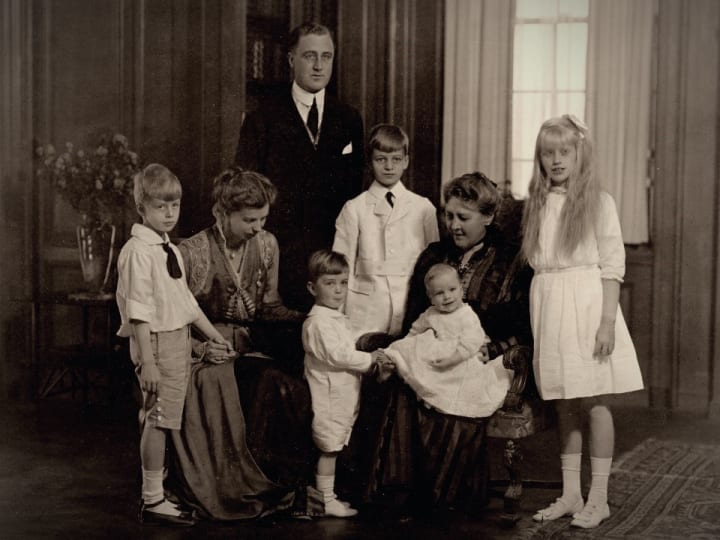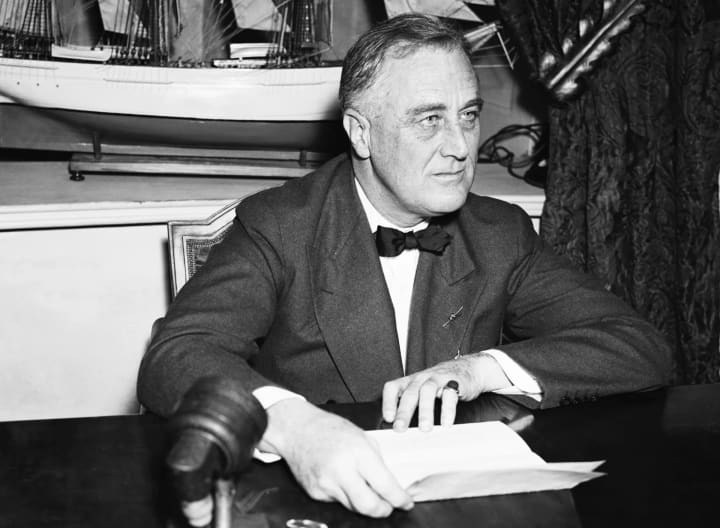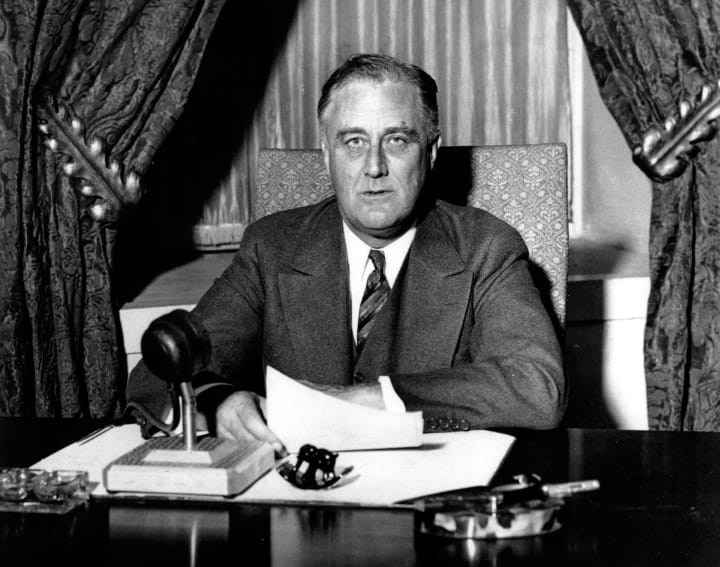
Franklin D. Roosevelt, also known as FDR, was the 32nd President of the United States. He is widely regarded as one of the most influential presidents in American history, having led the country through the Great Depression and World War II. In this article, we will explore his life, political career, presidency, personal life, and legacy.
Early Life and Education
Franklin D. Roosevelt was born on January 30, 1882, in Hyde Park, New York. His family was wealthy and politically active, with his father serving as a congressman and his mother coming from a prominent family. Despite being born into privilege, Roosevelt was a sickly child and struggled with health issues throughout his life. He attended Harvard University, where he was an average student, and then went on to study law at Columbia University.

Political Career
Roosevelt's political career began in 1910 when he was elected to the New York State Senate. He quickly established himself as a reformer, pushing for progressive legislation and advocating for the working class. He was appointed Assistant Secretary of the Navy by President Woodrow Wilson during World War I, where he gained valuable experience in government and foreign policy.
In 1928, Roosevelt was elected governor of New York. He continued to champion progressive policies, including the regulation of public utilities and the creation of state-funded unemployment insurance. His success as governor catapulted him to the national stage and positioned him as a front-runner for the Democratic presidential nomination in 1932.

Presidency
Roosevelt was elected president in 1932, defeating incumbent Herbert Hoover in a landslide. He immediately began implementing his New Deal agenda, which aimed to stimulate the economy and provide relief to those suffering from the Great Depression. His programs included the Civilian Conservation Corps, which employed young men to work on environmental projects, and the Works Progress Administration, which provided jobs and income to millions of Americans.
When World War II broke out in Europe, Roosevelt initially maintained a policy of neutrality. However, as the war escalated, he began to provide aid to Allied powers and ultimately led the United States into the war following the Japanese attack on Pearl Harbor in 1941. He worked closely with Allied leaders Winston Churchill and Joseph Stalin to coordinate military strategy and shape the post-war world order.
Roosevelt's domestic policies also included the establishment of Social Security, which provided retirement benefits to millions of Americans, and the Fair Labor Standards Act, which established minimum wage and overtime pay regulations.

Personal Life
Roosevelt married his distant cousin, Eleanor Roosevelt, in 1905. They had six children together, although their marriage was strained due to Franklin's infidelity and Eleanor's independent spirit. Roosevelt's health continued to deteriorate throughout his presidency, and he was eventually diagnosed with polio in 1921. Despite being paralyzed from the waist down, he remained active in politics and used a wheelchair and leg braces to move around.
Legacy
Roosevelt's presidency had a profound impact on American society and politics. His New Deal policies helped lift millions of Americans out of poverty and established a precedent for government intervention in the economy. He also played a pivotal role in the Allied victory in World War II, which helped cement the United States' position as a global superpower.
Roosevelt's legacy also includes his role in shaping the modern Democratic Party. His coalition of labor unions, minorities, and progressives laid the groundwork for the New Deal coalition that dominated American politics for several decades.
Despite his accomplishments, Roosevelt's presidency was not without controversy. Some criticized his New Deal policies as excessive government intervention, while others accused him of overstepping his authority and undermining American democracy.

Conclusion
In summary, Franklin D. Roosevelt was a transformative figure in American history. His leadership during the Great Depression and World War II helped shape the modern world, and his legacy continues to be felt in American politics today.
About the Creator
Navanithe
I am an enthusiastic, self-motivated, reliable, responsible, and hard-working person. I am a mature team worker and am adaptable to all challenging situations. I am able to work well both in a team environment and on my own initiative.






Comments
There are no comments for this story
Be the first to respond and start the conversation.